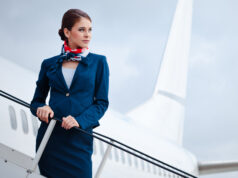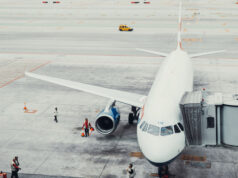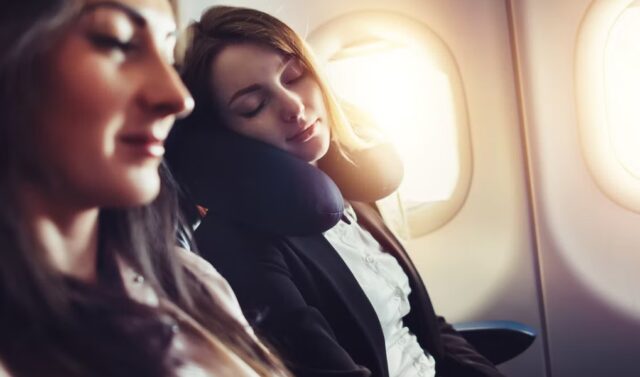
If you are planning a trip that will be a bit longer or if you are planning to fly from one place to another, it is important to get quality sleep. There are a few things you can do to help you get the sleep you need, and it is not impossible.
Avoid Checking Your Phone
Inflight Wi-Fi is a great convenience for traveling, but it can also disrupt sleep. Luckily, there are ways to minimize this effect and get the rest you need.
One of the best ways to make sure your sleep is undisturbed is to avoid checking your phone before you go to bed. You can also try to put your phone in Airplane Mode, which prevents it from communicating with cell towers. However, keep in mind that some airlines do not allow you to use your device in this mode.
The biggest issue with inflight Wi-Fi is that it is usually limited in bandwidth. If you want to watch movies, stream videos, or do other activities, it’s better to pay for a high-bandwidth service. Some airlines charge higher fees for these services.
Window Seat
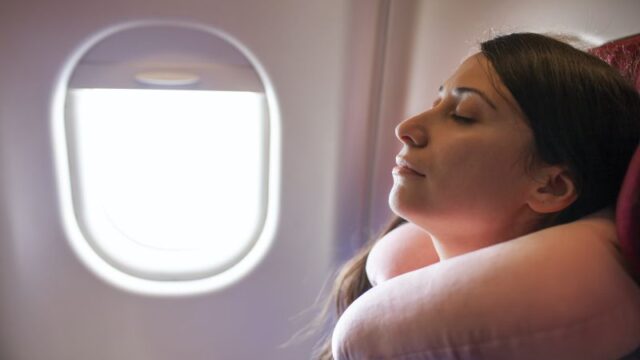
Does sleeping on flights creates uneasiness? Well, the situation can be different for different passengers. People with vertigo can face real challenges while resting on a plane while there are also some who fear turbulence.
Getting a good night’s sleep on a plane can be a real challenge. Luckily, there are a few tricks of the trade that can help you get a snooze on your next flight. One of the best tips is to try and find a window seat. Although it can be a pain, the perks of sitting at a window are many. For instance, it provides a bit of privacy. You can also lean against the window and enjoy partial head support.
Another tip is to bring along a decent pillow. This will allow you to fall asleep with less stress. Other options include a neck pillow or even a travel pillow. Keeping a warm and well-padded pair of socks will keep your feet warm and prevent any blood clots that can arise from prolonged travel.
Lavender Oil
Lavender oil can help you achieve a good night’s sleep. Several studies have shown that this particular essential oil is a good choice to improve your sleep. Its soothing, calming effects can help you to relax and drift off to sleep.
For many people, lavender is known for its relaxing properties. This can include the relief of pain, swelling, and inflammation. It is also an antimicrobial agent. Using lavender oil isn’t difficult. You can either apply it to your body or use a vaporizer. There are even plug-in diffusers available.
Another way to enjoy lavender is by using it as a scented bath. By adding a few drops to your bath water, you can enjoy a bath that smells great and will help you to relax before you go to bed.
Melatonin
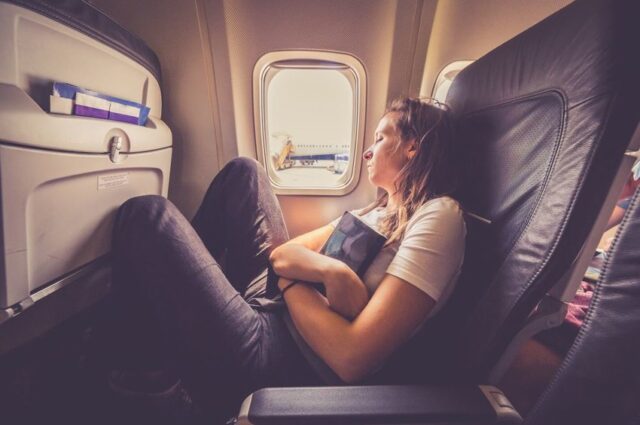
If you’ve taken a long flight, you’ve probably experienced jet lag. This condition occurs when your body’s internal clock is out of whack with the local day-night cycle. A good night’s sleep can help your body adjust.
Melatonin can help getting sleep on a plane. However, before you take this supplement, you should check with your doctor. Melatonin is a natural substance produced in the brain. It helps people get sleep by shifting the timing of their internal clocks.
Studies have shown that melatonin can be helpful for both short- and long-term problems with sleeping. For example, it can be helpful for sleep apnea, a common medical condition involving the inability to breathe normally while asleep. But it has also been associated with side effects such as drowsiness, confusion, and nausea.
Avoid Salty Snacks
There are many ways to get a good night’s sleep in the air, but one of the best tricks of the trade is to avoid salty snacks. Although salty snacks aren’t going to kill you, they can dehydrate you, which is the last thing you want on a plane.
If you’re a foodie or even a health nut, you’ll know that you need to eat well before you take to the skies. However, the airport terminals aren’t the most convenient place to grab a bite to eat. It’s easier to find a healthy option than you might think, but it can be a challenge to know what to choose.
Fortunately, many airlines are taking a more proactive approach to push out healthier options to their passengers. Some have even designed their in-flight menus to include more high-protein, low-salt options.
3 Tips for Getting Quality Sleep on a Plane
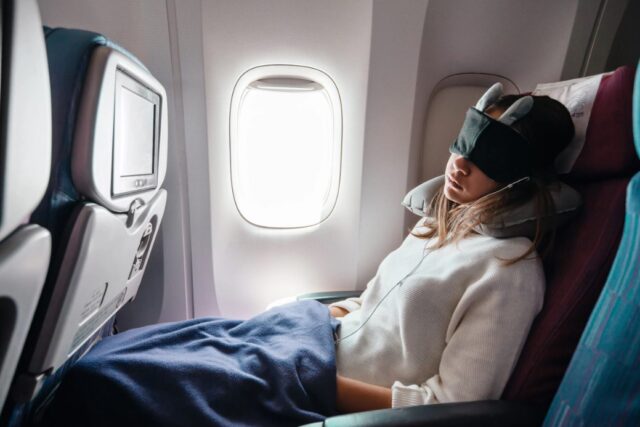
Getting good quality sleep on a plane can be challenging, especially if you are not used to sleeping in such a small, confined space. Thankfully, with the right approach and preparation, it is not only possible to get a few hours of restful sleep aboard but to do so safely and enjoyably. Here are some tips for getting quality sleep in a plane:
1. Wear comfortable clothing
Aim to wear clothes that are loose-fitting and made of natural fibers such as cotton or silk. Clothes provide great insulation while traveling and will help regulate your body temperature. It’s also important to keep your feet warm when sleeping on a plane, so consider packing some thick socks as well.
2. Bring noise-canceling headphones
These headphones are great at blocking out any loud noises coming from other passengers’ conversations or from jet engine noises. When using them, don’t forget to adjust the volume appropriately for your ears’ comfort levels!
3. Consider using eye masks
Light can be disruptive when trying to sleep on an airplane. Using an eye mask will help block out light from other passengers or from the bright overhead lights that may be necessary during turbulence or take-off/ descend periods.
An eye mask will also help reduce glare from smartphones and other digital screens around you which stimulate alertness rather than allow for drowsiness or relaxation!
Conclusion
When flying with anxiety, getting a good night’s sleep on the plane is essential to arriving at your destination feeling rested and refreshed. Follow these tips and you’ll be well on your way to catching some Z’s mid-flight. Do you have any other tips for sleeping on a plane with anxiety? Share them in the comments below!

